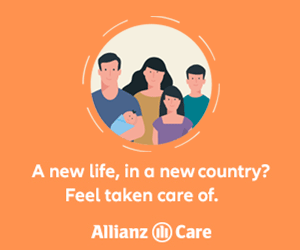Types of Mental Health Professionals
Summary: Navigating the world of mental healthcare can be confusing, especially with so many professional titles. Each professional has unique training, expertise, and roles. Here's a breakdown to help clarify the differences.
Navigating the world of mental healthcare can be confusing, especially with so many professional titles. Each professional has unique training, expertise, and roles. Here's a breakdown to help clarify the differences:
Counselor:
Education: Typically holds a Master's degree in counseling, psychology, or a related field.Role: Focuses on helping individuals, couples, or groups navigate various life challenges, from coping with daily stressors to managing chronic mental health conditions. They use therapeutic techniques to promote wellness, address emotional issues, and improve communication.
Licensing: Often licensed as Licensed Professional Counselors (LPC) or Licensed Mental Health Counselors (LMHC), depending on the state.
Social Worker:
Education: Usually holds a Master's in Social Work (MSW).Role: While they can and often do provide counseling, their training emphasizes connecting clients with social services, community resources, and assistance programs. They often work in diverse settings like hospitals, schools, and government agencies and might address issues like child welfare, housing, and public health.
Licensing: Licensed as Licensed Clinical Social Workers (LCSW) or Licensed Independent Clinical Social Workers (LICSW) when focusing on clinical or therapeutic roles.
Family Therapist:
Education: Typically has a Master's or Doctoral degree in marriage and family therapy, counseling, social work, or psychology.Role: Specializes in understanding family dynamics, relationships, and systemic interactions. They work with families, couples, or individuals to address and improve interpersonal relationships and patterns.
Licensing: Commonly licensed as Marriage and Family Therapists (LMFT).
Psychologist:
Education: Holds a Ph.D. or Psy.D. in psychology.Role: Primarily offers psychotherapy and conducts psychological testing. Their training emphasizes understanding human behavior, mental processes, and research and statistical methodologies. Clinical psychologists focus on diagnosing and treating mental, emotional, and behavioral disorders.
Licensing: Licensed as a psychologist, which requires extensive supervised clinical experience and passing a state exam.
Psychiatrist:
Education: A medical doctor (M.D. or D.O.) specialized in psychiatry.Role: Focuses on the diagnosis, treatment, and prevention of mental, emotional, and behavioral disorders. Being medical doctors, they are the only professionals among this list who can prescribe medication. Their training integrates the biological, psychological, and social aspects of mental health.
Licensing: Requires a medical license, followed by specialized training and board certification in psychiatry.
While these descriptions provide a general overview, it's essential to understand that roles can sometimes overlap. For instance, both a counselor and a clinical social worker might provide individual psychotherapy. The right professional for an individual often depends on the specific needs, preferences, and the nature of the concerns they're addressing. If you're seeking help, it's always a good idea to inquire about a professional's training, expertise, and approach to ensure it aligns with your needs.
About the Author
 Joshua Wood, LPC joined Expat Exchange in 2000 and serves as one of its Co-Presidents. He is also one of the Founders of Digital Nomad Exchange. Prior to Expat Exchange, Joshua worked for NBC Cable (MSNBC and CNBC
Primetime). Joshua has a BA from Syracuse and a Master's in Clinical and Counseling Psychology from Fairleigh Dickinson University. Mr. Wood is also a licensed counselor and psychotherapist.
Joshua Wood, LPC joined Expat Exchange in 2000 and serves as one of its Co-Presidents. He is also one of the Founders of Digital Nomad Exchange. Prior to Expat Exchange, Joshua worked for NBC Cable (MSNBC and CNBC
Primetime). Joshua has a BA from Syracuse and a Master's in Clinical and Counseling Psychology from Fairleigh Dickinson University. Mr. Wood is also a licensed counselor and psychotherapist.
Some of Joshua's articles include Pros and Cons of Living in Portugal, 10 Best Places to Live in Ireland and Pros and Cons of Living in Uruguay. Connect with Joshua on LinkedIn.
First Published: Apr 15, 2024


